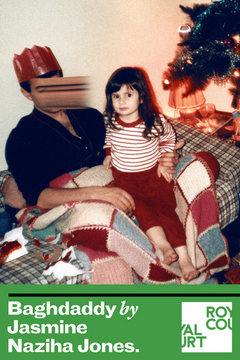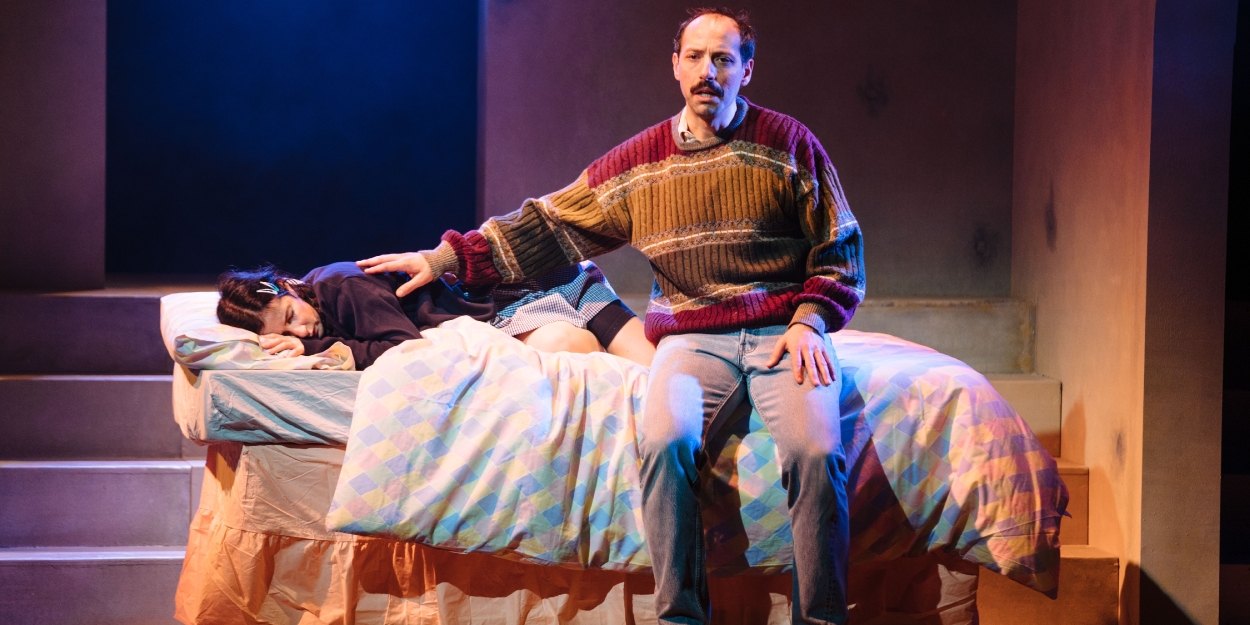Review: BAGHDADDY, Royal Court
When Jasmine Naziha Jones's razor-sharp writing is given the room to breathe, it breathes fire.

|
|


There is an interesting theme emerging in the Royal Court's new season. Each play so far has been part of a paradigm shift towards exploring intensely personal stories and questions. It doesn't feel like a knee jerk reaction to a post Covid world. It feels like there is something more fundamental going on.
Baghdaddy continues this trend. A searingly heartfelt account of the conflicts in Iraq, Jasmine Naziha Jones' debut play feels almost autobiographical with a sprinkling of magical realism on the side. The play's perspective lies firmly with what seems to be a version of Naziha Jones herself. Darlee, a young half-Iraqi girl growing up in England, watches her Iraqi father struggle to process the conflict that tears his homeland and his family apart.
The trauma bleeds across geography and generations. Unfolding in a purgatorial dreamlike memory-scape, Baghdaddy is less interested in documentary and more in Darlee's subjective perspective as a child, as half-Iraqi, as someone who must carry their alienation with them as a burden. A chorus acting as angels and devils on Darlee's shoulders force her to confront memories of her father, and unpick unresolved emotions.
Darlee's father, played with a solemn tenderness by Philip Arditti, emerges as the real anchor of the play. He is effectively on trial: a neglectful father? Or a dutiful brother caught in the cycle of war? We see his story navigating the ebbs and flows of 1980's England, struggling with the intricacies of language, prejudice, and agonizing nostalgia for his homeland.
Naziha Jones' writing confronts heavy themes with lucidity and lightness, chewing up characters, form, and plot and spiting them out with an anarchic mischievousness that is difficult to resist. Her performance is an incandescent tour-de force. She inhabits Darlee with bittersweet sentimentality and rubber-like versatility.
It is a shame that the force and vivacity of the writing is stifled by direction that is too eager to please. Director Milli Bhatia throws everything at the wall to match the script's energy; she wants to capture Darlee's innocence through a palpable sense of play, bright colours and childish chaos. But the result is hit and miss. Sometimes the direction captures the tonal complexities in all their knottiness but sometimes, without acute refinement, it loses its footing and trips itself up on its own eagerness.
Its most poignant moments are the ones unencumbered by glossy direction. Towards the end of the play a more mature Darlee delivers a searing monologue in response to a seemingly innocent question "What do you think of Saddam?" Its poetry flows with scorching fury. Each line is a theatrical hammer delivering blow after blow, smashing geopolitics and history to pieces. When Naziha Jones's razor-sharp writing is given the room to breathe, it breathes fire.
Baghdaddy plays at the Royal Court until 17 December
Photo Credit: Helen Murray
Videos
